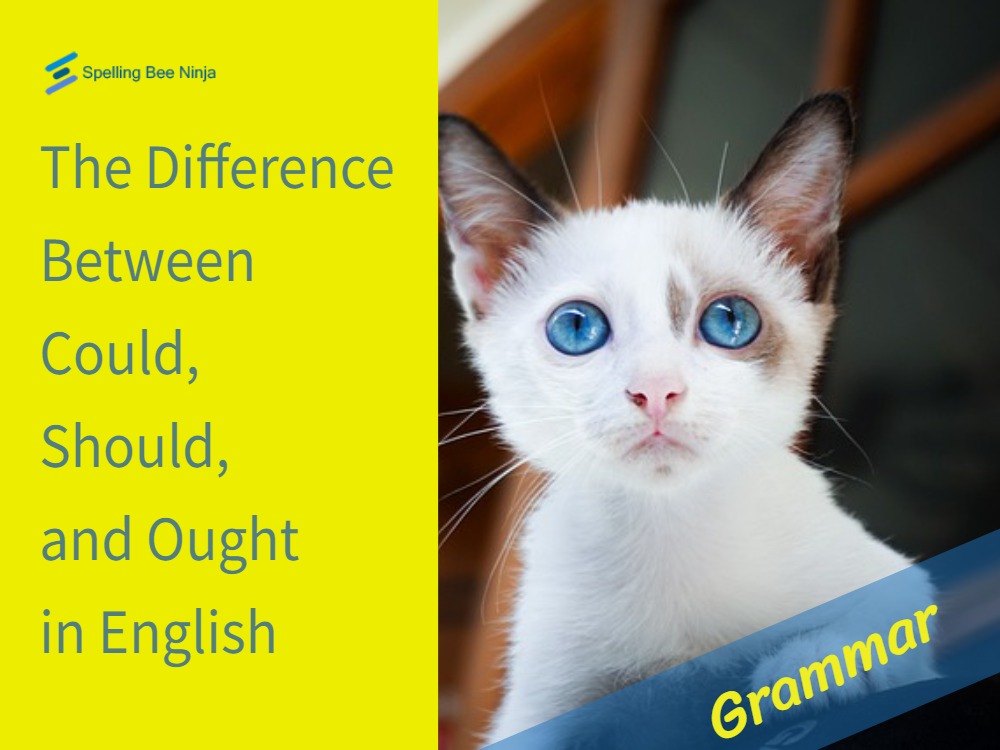Understanding how to correctly use could, should, and ought is essential for conveying nuances in possibility, advice, and obligation in English. While all three are modal verbs, each serves distinct purposes.
Could: Expressing Possibility and Politeness
– Possibility: Could denotes actions or events that are possible but not certain.
– Example: We could take a different route to avoid traffic.
– This leaves open the decision-making process and emphasizes flexibility.
– Past Ability: It refers to something someone was capable of in the past.
– Example: She could solve complex problems at a young age.
– Politeness in Requests: Using could makes a request softer and more courteous.
– Example: Could you lend me your book?
Should: Giving Advice and Highlighting Expectations
– Advice or Recommendations: When offering suggestions, should is the go-to verb.
– Example: You should visit the museum—it’s incredible!
– Expressing Expectations: It conveys what is likely or expected.
– Example: They should finish the project by next week.
– Moral Responsibility: It can also express what is ethically correct.
– Example: We should always treat others with respect.
Ought: Emphasizing Moral Obligations
– While similar to should, ought often carries a deeper moral or ethical emphasis.
– Example: You ought to donate to charity if you can afford it.
– It also suggests the correctness of an action.
– Example: We ought to prepare for emergencies.
Though less commonly used in everyday speech, ought remains formal and adds gravity to statements.
Common Misunderstandings
While could is frequently interchangeable with can, the former is more conditional or polite. Similarly, ought may be replaced by should without significant loss of meaning, though ought adds a moral dimension.
Here are ten examples for each of the modal verbs could, should, and ought to clarify their use in various contexts.
Examples of “Could”
1. We could go to the park if the weather clears up. (Possibility)
2. She could play the piano beautifully when she was younger. (Past ability)
3. Could you help me carry these bags? (Polite request)
4. He could have joined the team, but he chose not to. (Unrealized possibility)
5. I could finish this task by tomorrow if I focus. (Conditional possibility)
6. Could it be that she forgot the meeting? (Speculation)
7. They could succeed if they put in the effort. (Potential outcome)
8. I could hear birds chirping outside the window. (Past sensory ability)
9. You could try taking a different approach. (Suggestion)
10. That plan could fail if we don’t double-check the details. (Hypothetical outcome)
Examples of “Should”
1. You should eat more vegetables to stay healthy. (Advice)
2. They should be here by now. (Expectation)
3. You should apologize to her for being rude. (Moral obligation)
4. We should start saving money for emergencies. (Recommendation)
5. Everyone should respect the rules of the community. (Ethical statement)
6. You should have told me about the problem earlier. (Regret/criticism of past action)
7. Parents should encourage their children to read more. (Advice for others)
8. I should call my friend to check in on them. (Personal obligation)
9. Students should review their notes before exams. (Practical advice)
10. He should know better than to behave like that. (Moral judgment)
Examples of “Ought”
1. You ought to visit your grandparents more often. (Moral duty)
2. He ought to have helped her when she asked. (Regret of missed action)
3. People ought to recycle to protect the environment. (Ethical responsibility)
4. She ought to finish her homework before going out. (Advisability)
5. We ought to respect everyone, regardless of their background. (Moral statement)
6. The company ought to invest in better technology. (Recommendation)
7. This book ought to be in every school library. (Strong suggestion)
8. You ought to be careful while driving in the rain. (Advice about caution)
9. He ought to be punished for his misconduct. (Moral judgment)
10. Scientists ought to share their findings for the benefit of society. (Ethical duty)
Pro Tips for Learners
To master these nuances, immerse yourself in examples and practice exercises. Visit Spelling Bee Ninja’s for interactive resources that focus on modal verbs.
Learning the difference between these words will not only enhance your grammar but also your ability to express yourself clearly in English!
- ✈️ How to Use Articles in English
- 🐝 Mastering Adjectives: A Key to Enhancing Your Writing Skills
- 🎮 Pronoun Puzzle: A Fun Way to Practice Personal and Possessive Forms
- 🎮 Adjective Adventure: Descriptive Word Search!
- ✈️ How to use prepositions in English
- ✈️ English Adverbs – 5 Quick and Easy ways to learn.
- The definitive pronouns list
- 🐝 Understanding conjunction words and where to use them
- ✈️ Modal Verbs in English: A Comprehensive Guide
- 🐝 Prepositions list – The definitive guide
- ✈️ Active and Passive Voice
- ✈️ What vs Which: differences and examples
- 🐝 Complete transition words list
- ✈️ How to Use Punctuation in English
- ✈️ Exploring the Difference Between “Will” and “Shall” in English
- ✈️ The Difference Between Could, Should, and Ought in English
- ✈️ Common Idiomatic Expressions in English
- ✈️ 40 English Prefixes and their meanings
- ✈️ 30 Most common English suffixes and their meaning.
- 🐝 Linking Words In English And How To Learn Them Effectively
- ✈️ Comparative and Superlative Adjectives
- ✈️ The Six Noun Types (Common, Proper, Countable, Uncountable, Collective, Abstract)
- ✈️ Understanding English Clauses: A Complete Guide
- ✈️ Understanding Sentence Structure in English
- ✈️ Gerunds and Infinitives: Understanding Verb Complements in English
- ✈️ Common Pronunciation Mistakes and How to Fix Them
- ✈️ Question Formation in English
- ✈️ Common Sentence Errors: Fragments, Run-ons, and Misplaced Modifiers
- ✈️ Say What?! A Fun Guide to Direct and Indirect Speech
- ✈️ Commonly Confused Words
- 🐝 ELA vocabulary: Essential English Language Arts Terms Every Student Should Know
- ✈️ Formal vs. Informal Language
- ✈️ Mastering Phrases in English Grammar
- ✈️ Conditionals (Zero, First, Second, Third, Mixed Conditionals)
- ✈️ Emphasis and Inversion in Sentences
- ✈️ Understanding and Using the Imperative Form


